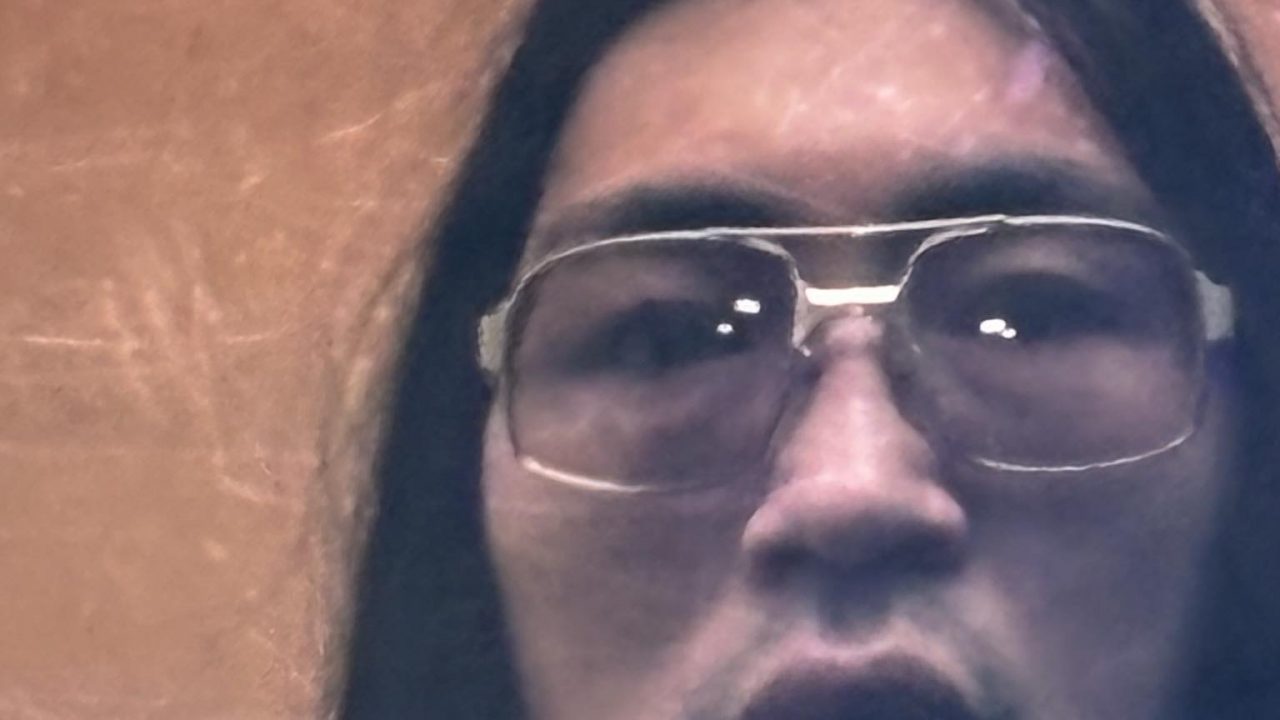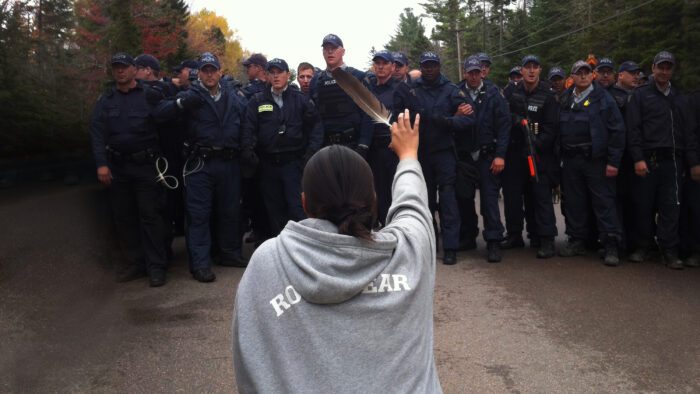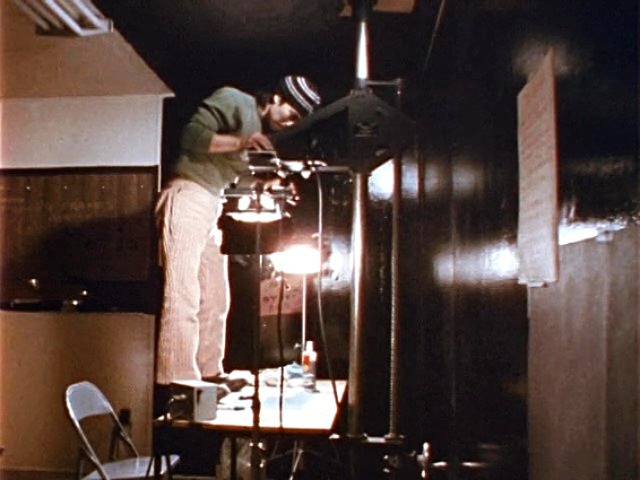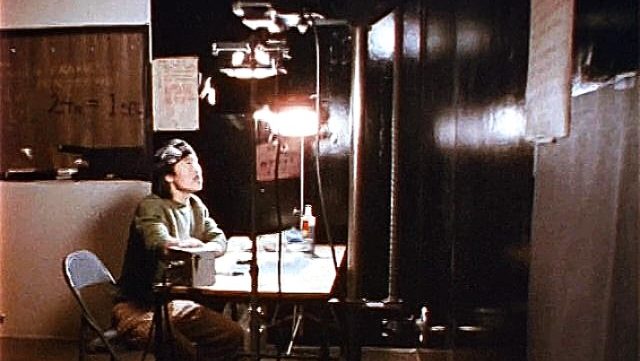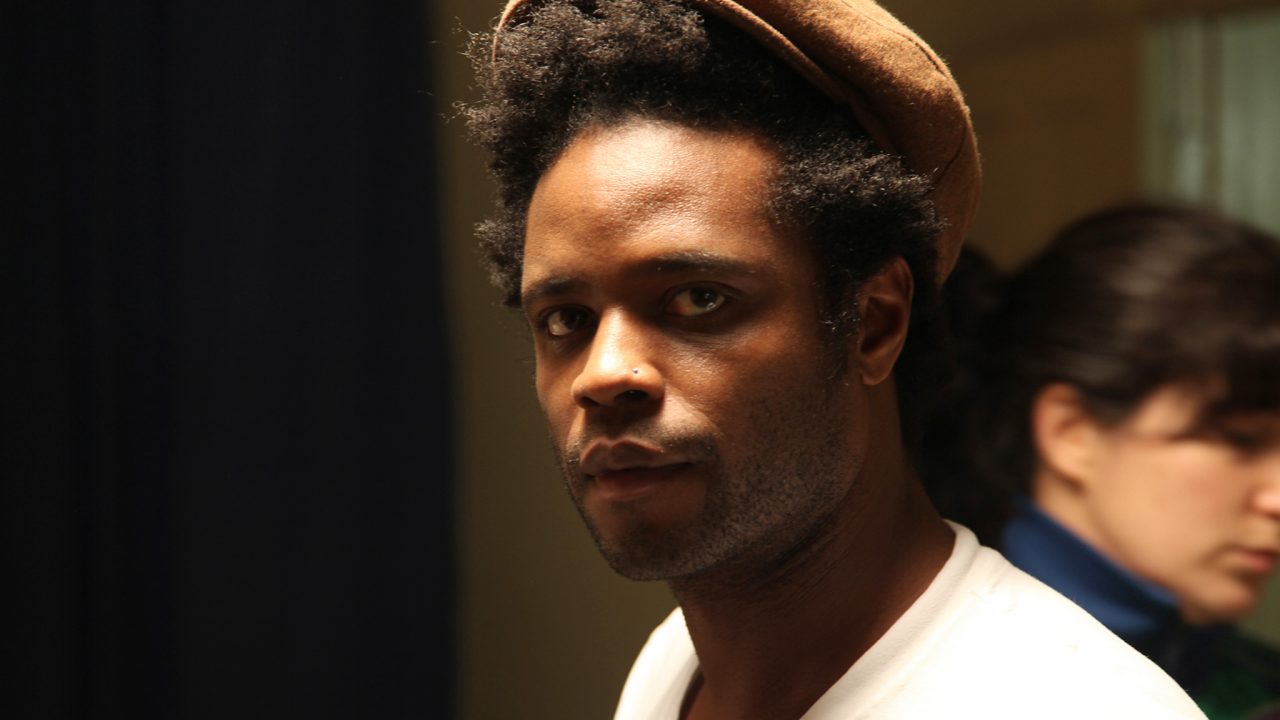
Charles Officer: Poet of the Screen
Charles Officer: Poet of the Screen
There are some artists whose untimely death we find particularly upsetting. When we first learn that they’ve passed away, we’re overcome with a sense of disbelief that soon gives way to sadness. Then we reflect on what’s been lost. How many other projects might they have completed? How many great works of art will now never be born? Charles Officer was one such artist.
Born in Toronto on October 28, 1975, Officer died on December 1, 2023, after a long illness. He was just 48. A writer, director, producer and actor, he left behind a powerful, poetic and highly personal body of work. In an interview with the CBC, producer Jake Yanowski, a friend of Officer’s, summed it up perfectly: “Charles obviously grew up as a young Black kid in Toronto so that he was going to speak to that but he was going to speak to it in the most beautiful and poetic way possible because he was a poet of the screen.”[1]
Black History Month is the perfect opportunity to pay tribute to and revisit the work of this prolific filmmaker.
First feature film
After making several short films, some of which were screened at the Toronto International Film Festival and the New York Film Festival, Officer wrote and directed his first dramatic feature, Nurse.Fighter.Boy, in 2008. The screenplay, co-written with Ingrid Veninger, tells the story of three characters with intertwining fates: Jude, a single mother battling sickle-cell anemia who works as a hospital nurse; Ciel, her young son; and Silence, a boxer on the decline who becomes a father figure for the boy. This highly poetic film (with characters named Ciel and Silence, how could it be otherwise?) proved popular with viewers, winning audience choice awards for best film at the International Film Festival Mannheim-Heidelberg and the Sarasota Film Festival. Nurse.Fighter.Boy already featured the lyricism that would characterize Officer’s body of work, along with many of the themes he would explore in later films, such as childhood, poetry, mother and father figures, death, and Jamaican culture, which he knew well, his mother being Jamaican-born.
Drama and documentary
In a short video published on the CBC website, when Officer was asked which film most changed his approach to filmmaking, he immediately responded Killer of Sheep (1977). This feature film by Black American filmmaker Charles Burnett moved Officer deeply, and he admired its lyricism and almost documentary-like realism, which made him realize that he could blend fiction and documentary or, more specifically, approach the documentary like a scripted film. He used this approach to make two documentaries produced by the National Film Board: Mighty Jerome (2010) and Unarmed Verses (2016).

The world’s fastest man
Canadian athlete Harry Jerome was a true Canadian hero. A specialist in the 100- and 200-metre events, he first made a name for himself in July 1960 as a student at the University of Oregon. At a track meet in Saskatoon, he equalled the world record in the 100 metres—10 seconds—then held by German Armin Hary. Canadian long-distance runner and Olympic athlete Bruce Kidd, who was at that race, claims that Jerome’s time was actually 9.9 seconds, which would have made him the fastest man in the world at the time. However, the officials deemed that no one would believe a Canadian could achieve that time, so they rounded it up to 10 seconds. Jerome then took part in the 1960 Olympic Games in Rome and the 1964 Olympics in Tokyo, where he won the bronze medal after having suffered a terrible thigh injury two years earlier. In 1966, he won the gold medal in the 100-yard dash (a distance no longer run in track) at the Commonwealth Games in Kingston. The next year, he won gold again, in the 100 metres, at the Pan American Games in Winnipeg.
Mighty Jerome, Charles Officer, provided by the National Film Board of Canada
Mighty Jerome
Harry Jerome enjoyed great success in his lifetime, but he also faced huge challenges such as racism, unjust media criticism in his own country, and injuries—one so severe it almost disabled him—that often forced him to stop racing. Charles Officer’s documentary Mighty Jerome brilliantly tells the story of the rise, fall and redemption of one of Canada’s greatest athletes. As mentioned previously, Officer’s approach borrowed from fictional film techniques. He used black and white to create images that blend seamlessly with footage from the 1960s, crafting a dramatic ambiance. He also added superb fictional scenes to enrich the account. He used extreme close-ups to film his subjects, humanizing them and making them more endearing. And he made deft use of archival footage to give the film more immediacy without ever disrupting continuity. Officer’s first feature documentary was a great success and shed light on an important figure in Canadian history who is not talked about enough.
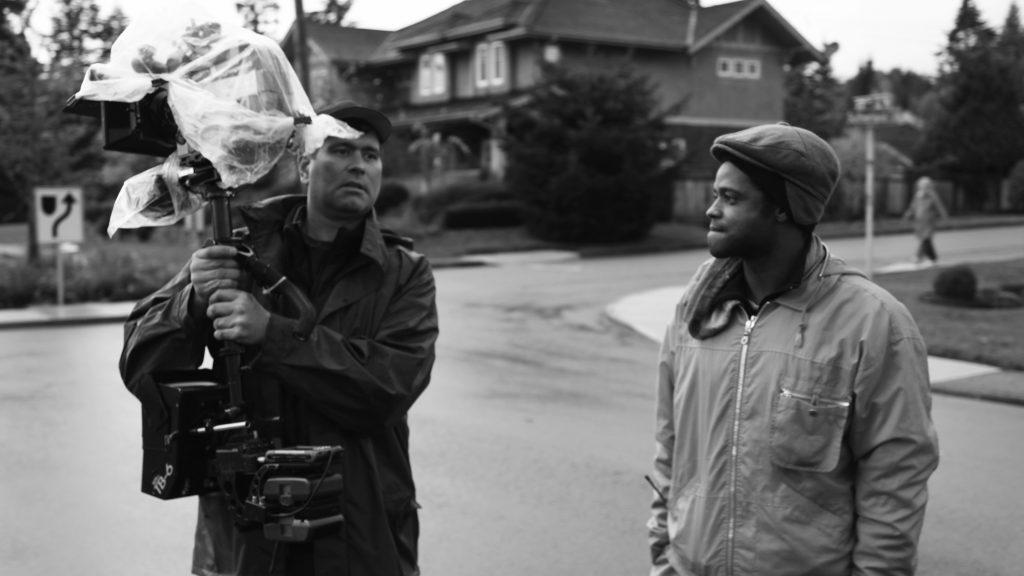
The history of a community
Shortly after completing Mighty Jerome, Officer started working on a new documentary with the NFB, Unarmed Verses, which examined a different subject altogether. This time, he pointed his lens at the Toronto community-housing project of Villaways, which was about to be relocated to make way for urban revitalization. The row houses that provided social housing would be demolished in favour of larger, more spacious dwellings. The residents of Villaways, some of whom had lived there for over 30 years, did not want to move. But above all they worried that they’d never be able to return there to live in the new housing, which would likely be unaffordable.
Unarmed Verses, Charles Officer, provided by the National Film Board of Canada
The film’s strength is that Officer introduces us to the community through a group of young people taking part in a songwriting workshop. In particular, he follows Francine, a 12-year-old Black girl from Antigua, who has lived with her family in Villaways for a decade. Though shy, Francine is bright, sharp-witted and has a remarkable flair for writing and poetry, and her powerful screen presence soon makes her the spokesperson for the entire community. Like its protagonist, Unarmed Verses is luminous, poetic and hopeful. In it, Officer revisits some themes in his first feature-length film, such as youth, poetry, music and the importance of a mother figure.
Film and television
The years that followed were prolific for Officer, who worked on numerous film and television projects. In 2017, he made The Skin We’re In, a powerful documentary, based on the eponymous book by Canadian journalist Desmond Cole, that shines a spotlight on systemic racism in Canada. The next year, he shot Invisible Essence: The Little Prince, a doc about the profound meaning and cultural heritage of French author Antoine de Saint-Exupéry’s famous novel The Little Prince. From 2020 to 2022, he directed several episodes of the CBC television series Coroner and The Porter.
Last film
In 2020, Charles Officer made his last film, a deeply personal project entitled Akilla’s Escape, which he had started writing in 2010. This feature drama starred American singer, poet, writer and actor Saul Williams, who had been the narrator for Might Jerome. Akilla’s Escape tells the story of Akilla, a reformed drug dealer who tries to save a young boy named Sheppard from falling into a life of crime. The film alternates between Akilla’s attempts to help the young boy and his own criminal past while living in New York City as a young man. Akilla clearly sees himself in the youth he is trying to save, and in fact the same actor plays the roles of young Akilla and Sheppard. Though Officer’s last work is more accomplished and polished, it does recall his first film, Nurse.Fighter.Boy, in many respects. The setting might be different, but the themes are identical. The powerful writing, true-to-life characters and compelling performance of Saul Williams make Akilla’s Escape a must-see film.
I hope you’ll watch Mighty Jerome and Unarmed Verses on the NFB website.
The films Nurse.Fighter.Boy, The Skin We’re In, Invisible Essence: The Little Prince, Akilla’s Escape, along with the episodes of Coroner and The Porter directed by Charles Officer, are available to watch online and on the CBC Gem app.
[1] , December 4, 2023.
